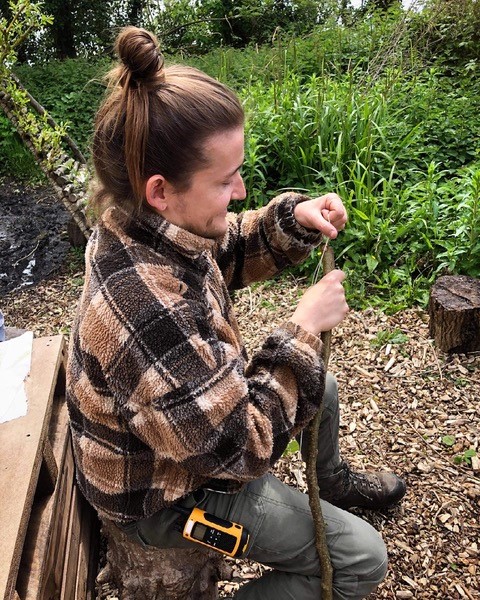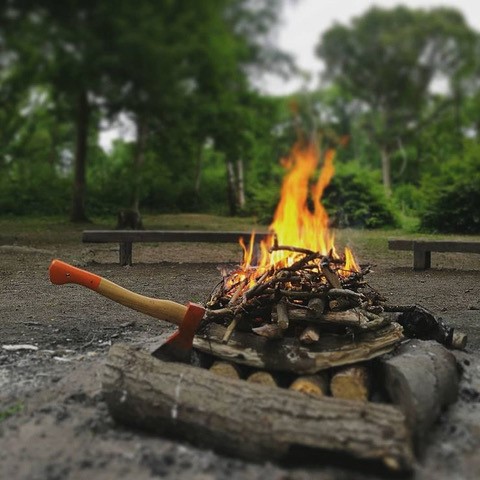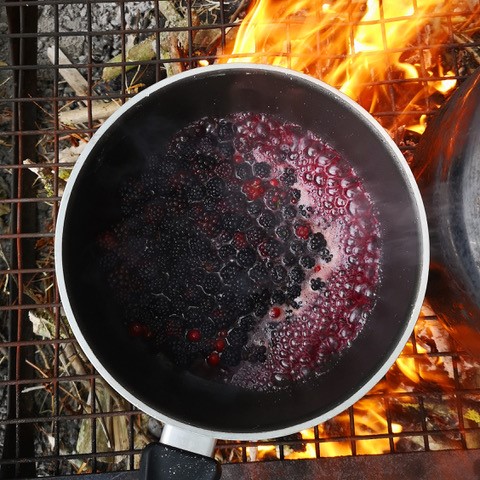Benjamin Richardson, Forest School Teacher

I am a Level 3 qualified Forest School Leader based in Eastbourne, East Sussex with a BSc (Hons) in Ecology & Wildlife Conservation. Now what is a Forest School Teacher you may ask? Well, I have worked for 4 years with children ages 2-10, helping to develop their Holistic growth. Forest School has been historically used in Scandinavia to nurture children’s Physical, Mental, Emotional and Spiritual growth; forming the important basis of the whole child. It encompasses the “friluftsliv” ethos of life in Scandinavia meaning every child has a right to “free open-air life”.
Through child-led hands-on experiences in a woodland setting, children learn to whittle sticks, light fires, forage, build shelter, climb trees, create art using natural materials and more! The internal growth in children I have experienced is nothing short of incredible. They learn team building communication, resilience in all weathers and get to express themselves in the most authentic way possible; with no walls surrounding them or a desk to sit at. True freedom to just be.
Now as an eco-warrior myself, I like to incorporate environmentalism into my work. Activities in my Forest School practice at Primary School and Nursery settings have included tree planting, growing vegetables for the school kitchen, litter picking on beach trips etc. All with a discussion at differing age-appropriate levels as to why we are doing this work. It is interesting to hear what children think about nature and the environment, 90% of the time having a genuine fascination and love for it. It is a fortunate symptom of Forest School that children’s respect and consideration for the natural environment develops quite drastically, just by being outside!
When I first started Forest School, I never intended to feed the children vegan food even though I myself have been one for 7 years. But I noticed the intrigue surrounding the “plant hotdogs” I would eat whilst the children enjoyed their pork hotdogs. They would ask me why, how, when and I would say things like “because I prefer them.” I would sit and wonder to myself;
“Am I doing these children a disservice by not giving them the opportunity to critically think about the food they eat, or educate them about the benefits of plant-based diets for health and the environment?”


I pondered whether my reluctance to talk to them about animal sentience and the realities of the animal agricultural industry was because I feared a potential backlash from parents?
I decided that introducing elements of ethical veganism to children could only result in a positive contribution to their education and welfare. I would be giving them early access to information I wish I had as a child. Extending the freedom of being outside, to open conversations about the food they consume and the ethical choices available to them would enable a more holistic approach to their development.
So, every now and then, I light up the campfire and make the children vegetable paellas, stir fries, vegan cheese nachos, Nokkusletut (nettle pancakes), herbal teas using cleavers, nettles and ground ivy etc, explaining to them all the nutritional health benefits these meals possess. I even teach them about the accessibility of plant-based options now by roasting vegan marshmallows, explaining how “No animal was harmed to produce such delicious treats! Isn’t that amazing!?”


The children in general are very interested in learning about the vegan lifestyle. I show them that I can eat all the meals they enjoy without the need for animal proteins or products. Some ask questions like “Why do we do this to animals?” or “If we don’t need to, should we?” Sometimes it takes children asking these questions to make us realise how unethical and unjustifiable our cultural practices are, especially when they cause such harm to humans, animals and the planet.
The reception of my vegan food by the children is ALWAYS positive, the parent helpers and work colleagues too! If parents are worried that I might “scare their child” or “create a problem for them at dinner time”, I try to allay such concerns by assuring them subjects are dealt with in an age-appropriate manner and highlight the health benefits of plant-based food.
In truth, facts about animal exploitation, climate change, loss of bio-diversity and health issues arising from the consumption of animal products are already out there. Conversations about these issues must be had to ensure a more ethical and sustainable way of living; our children’s very future depends on it. Where better for children to explore these conversations than with educational professionals in safe and caring environments.
Instagram: @bentheforestfoodie

